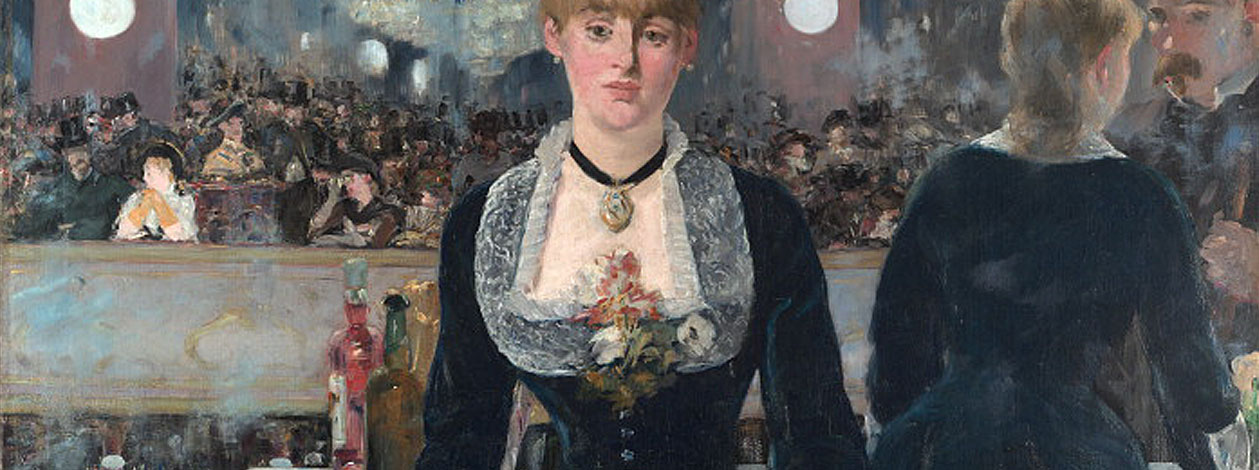Beyond the Label was a collaboration between The Courtauld Institute of Art, the University of Sheffield’s Department of Sociological Studies and The Digital Humanities Institute. The project explored how digital technology can be used to improve people’s understanding of art within the context of a gallery or museum space. 
It employed a user-centred design approach, including focus groups and interviews involving audience samples, in order to ascertain:
- Does the use of digital technology within galleries and museums add any genuine value to the visitor experience beyond novelty?
- If digital technology adds value to the experience, what are the best ways of achieving this in design terms?
Beyond the Label is the result of this research and design process. It is a system which enables The Courtauld’s curators to convey high-quality background information to users about The Gallery’s artworks.
The system is optimised for use on desktop PCs and mobile devices. The mobile version includes the facility to go directly to relevant information by scanning QR codes that are located alongside the works of art in The Courtauld Gallery.
Website and Web App
There are different versions depending on whether you are using a PC or a mobile device.
Online Publication
Report
Report for Phase 1 of the project, which set out to understand context and user expectations.
Project Team
- Dr Bridgette Wessels (Principal Investigator – Department of Sociological Studies, University of Sheffield)
- Henrietta Hine (The Courtauld Institute of Art)
- Joff Whitten (The Courtauld Institute of Art)
- Hannah Talbot (The Courtauld Institute of Art)
- Belinda Moore (Moore Blackett)
- Michael Pidd (The Digital Humanities Institute)
- Dr Michael Meredith (Developer – The Digital Humanities Institute)
- Ryan Bloor (Developer – The Digital Humanities Institute)
